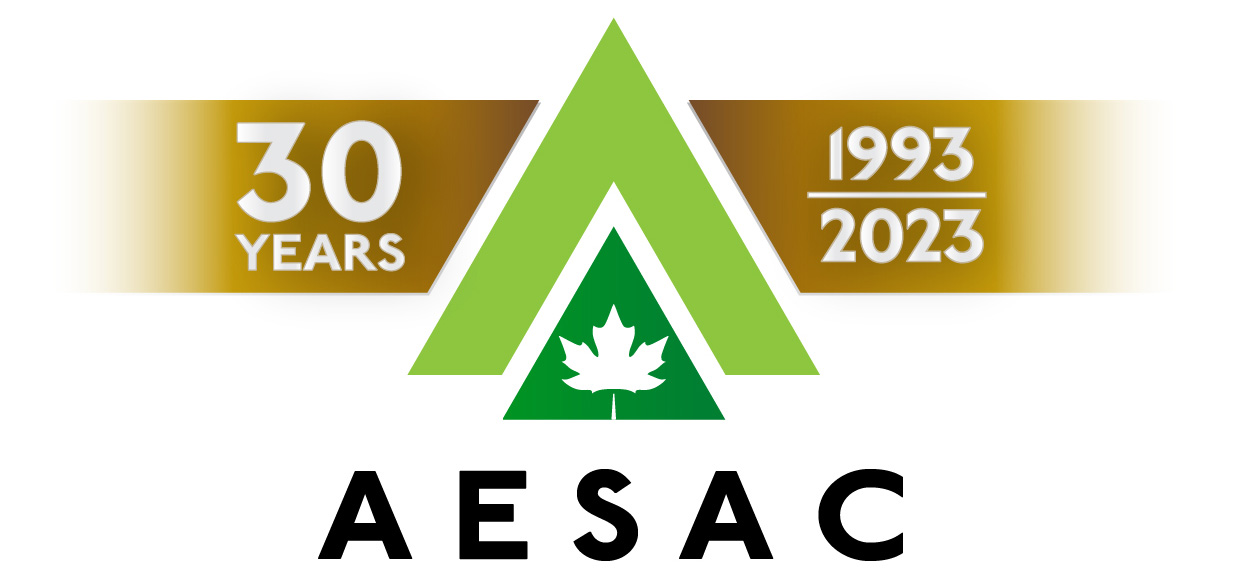- Home
- Training Courses
- Membership
- About Us
- Instructors Blog
- December 2023: All I Want For Christmas
- November 2023: ESA Report Reviews
- October 2023: Can AI Write an ESA Report?
- September 2023: Getting Paid... or Not
- August 2023: Take Me Back...
- July 2023: To Bid or Not To Bid
- June 2023: Selecting a Supplier
- April 2023: Phase 1 Problems, Part 3
- March 2023: Phase 1 Problems, Part 2
- February 2023: Phase 1 Problems, Part 1
- January 2023: Working Outside in Winter
- 2022 Blogs
- 2021 Blogs
- December 2021: Asbestos in your Home
- Sept 2021: Dirty Jars And Other Bad Things… Part 2
- August 2021: Dirty Jars And Other Bad Things… Part 1
- July 2021: How do you want that drawing to look? Part 2
- June 2021: How Did You Want That Drawing To Look? Part 1
- April 2021: So You Need a RSC... Part 2
- March 2021: So You Need a RSC... Part 1
- February 2021: What's In Your Toolbox? Part 2
- January 2021: What's In Your Toolbox? Part 1
- 2020 Blogs
- December 2020: A Day in the Life, Part 2
- November 2020: A Day in the Life, Part 1
- October 2020: Exploring Your Career Path
- September 2020: So You Want To Start Your Own Business - Part 2
- August 2020- So You Want to Start Your Own Business
- June 2020: Effective Communication
- May 2020: Tips For Working From Home
- April 2020: Conducting ESA’s During a Pandemic
- March 2020: It's Not Easy Being Green
- February 2020: Looking Ahead; Bold Predictions for the Next Decade
- January 2020: Looking Back; A Decade in Review
- 2019 Blogs
- 2018 Blogs
- 2017 Blogs
- 2016 Blogs
- 2015 Blogs
- Find an AESAC Member
Menu- Home
- Training Courses
- » Training Courses
- » Webinar Series
- » Calendar of Events
- » Course Registration
- » Course Instructors
- » Testimonials
- Membership
- » Become a Member
- » Certifications
- » Membership Search
- » Update Member Profile
- » Members Only
- » » Member Login
- » » Membership Renewal
- » » Create/Change Password
- » » CESA Certification Application
- About Us
- » About AESAC
- » Course Instructors
- » Contact Us
- Instructors Blog
- » December 2023: All I Want For Christmas
- » November 2023: ESA Report Reviews
- » October 2023: Can AI Write an ESA Report?
- » September 2023: Getting Paid... or Not
- » August 2023: Take Me Back...
- » July 2023: To Bid or Not To Bid
- » June 2023: Selecting a Supplier
- » April 2023: Phase 1 Problems, Part 3
- » March 2023: Phase 1 Problems, Part 2
- » February 2023: Phase 1 Problems, Part 1
- » January 2023: Working Outside in Winter
- » 2022 Blogs
- » » December 2022: Advice To My Younger Self
- » » October 2022: Pre-Purchase Due Diligence
- » » Sept 2022: Words Matter
- » » July 2022: Let Us Come To You
- » » April 2022: Due Diligence
- » » March 2022: Time Management
- » » February 2022: Spinning Augers... Part 2
- » » January 2022: Spinning Augers... Part 1
- » 2021 Blogs
- » » December 2021: Asbestos in your Home
- » » Sept 2021: Dirty Jars And Other Bad Things… Part 2
- » » August 2021: Dirty Jars And Other Bad Things… Part 1
- » » July 2021: How do you want that drawing to look? Part 2
- » » June 2021: How Did You Want That Drawing To Look? Part 1
- » » April 2021: So You Need a RSC... Part 2
- » » March 2021: So You Need a RSC... Part 1
- » » February 2021: What's In Your Toolbox? Part 2
- » » January 2021: What's In Your Toolbox? Part 1
- » 2020 Blogs
- » » December 2020: A Day in the Life, Part 2
- » » November 2020: A Day in the Life, Part 1
- » » October 2020: Exploring Your Career Path
- » » September 2020: So You Want To Start Your Own Business - Part 2
- » » August 2020- So You Want to Start Your Own Business
- » » June 2020: Effective Communication
- » » May 2020: Tips For Working From Home
- » » April 2020: Conducting ESA’s During a Pandemic
- » » March 2020: It's Not Easy Being Green
- » » February 2020: Looking Ahead; Bold Predictions for the Next Decade
- » » January 2020: Looking Back; A Decade in Review
- » 2019 Blogs
- » » November 2019
- » » September 2019
- » » August 2019
- » » July 2019
- » » May 2019
- » » March 2019
- » » February 2019
- » » January 2019
- » 2018 Blogs
- » » November 2018
- » » October 2018
- » » September 2018
- » » August 2018
- » » July 2018
- » » June 2018
- » » May 2018
- » » March 2018
- » » February 2018
- » » January 2018
- » 2017 Blogs
- » » April 2017
- » » June 2017
- » » August 2017
- » » September 2017
- » » December 2017
- » 2016 Blogs
- » » October 2016
- » » September 2016
- » » August 2016
- » » July 2016
- » » June 2016
- » » March 2016
- » » January 2016
- » » December 2016
- » » November 2016
- » 2015 Blogs
- » » April 2015
- » » July 2015
- » » September 2015
- » » October 2015
- » » December 2015
- Find an AESAC Member
Last month’s blog discussed interview preparation for prospective job-seekers in the environmental field. This article will provide suggestions to put your research and practice to good use in rocking that interview. Thanks again for the excellent input from my colleagues.
Appearance and First Impressions:
You only get one chance to make a first impression, so make it a good one. Be courteous and punctual - show up on time for the interview (early is even better). Dress appropriately for the position you are seeking. Unless you plan to work in high-end real estate or finance I don’t think a suit and tie is necessary, but you should look neat, clean and presentable. Personally, I don’t care about tattoos or piercings; but some employers and their clients do, and may think less of these personal fashion statements. It’s likely that an employer has already checked out candidates online, so make sure your Linked In profile is professional and perfect. Don’t forget to privatize and/or sanitize your personal social media accounts – Instagram pics of your beer pong tourney may be great for friends and family, but aren’t likely to impress an employer. Be polite, clearly enunciate your words, and avoid foul language, improper grammar and slang (I cringe when I hear terms such as ‘like’, ‘yep’ or ‘dude’ from a job candidate).Projecting ‘Likable Confidence’:
Ideally, you want the interviewer to come away with the desire to work with you, and to feel that you would be a valuable asset to their team. You can do this by projecting ‘likable confidence’ and making others feel comfortable around you. You want to demonstrate self confidence in your abilities, but still know your limits. Strive to sell your strengths and minimize your weaknesses - learn from your failures, embrace them even, but don’t dwell on them. Never exaggerate or embellish your skills and accomplishments. Drop the ego, and learn to be humble and approachable. A few people do all this naturally; the rest of us have to work at it.Listen and Ask Questions:
During the interview be sure to listen as much, or more, than you talk. Learn to read body language for cues to gauge your progress and know when the interview is concluding. Don’t brag, oversell yourself or denigrate others (like past employers) in the conversation. Be prepared with some well researched company-specific questions to ask the interviewer. Don’t ask about raises, vacation or overtime pay; when you could be asking detailed technical questions about a recent company project or report that interests you. This is where your diligent, pre-interview research pays off. Where applicable, bring some examples of your own work product that showcases your unique skills.Follow-Up:
Make sure you thank the interviewer for their time, both at the end of the interview and I would also suggest in a follow-up e-mail. Confirm an appropriate time-frame and method to inquire about the employer filling the position. If you are not the successful candidate, ask for constructive feedback and try to find out where you were deficient and how you can increase your chances for the next position.In conclusion, job hunting, especially that first position in your chosen field is very hard work. Stay positive, don’t get discouraged and keep striving for constant improvement – you’ll get there eventually!
Bill Leedham, P. Geo., CESA
Bill is the Head Instructor and Course Developer for the Associated Environmental Site Assessors of Canada (www.aesac.ca); and the founder and President of Down 2 Earth Environmental Services Inc. You can contact Bill at info@down2earthenvironmental.ca
Training Courses
Membership
About Us
Contact UsCopyright (c) 2024 Associated Environmental Site Assessors of Canada; AESAC Inc.



